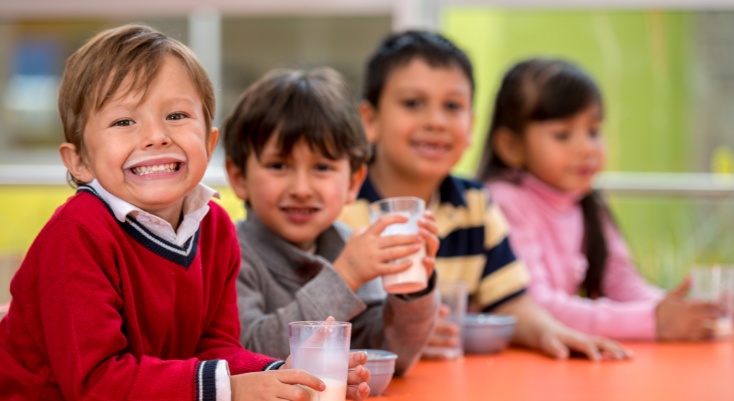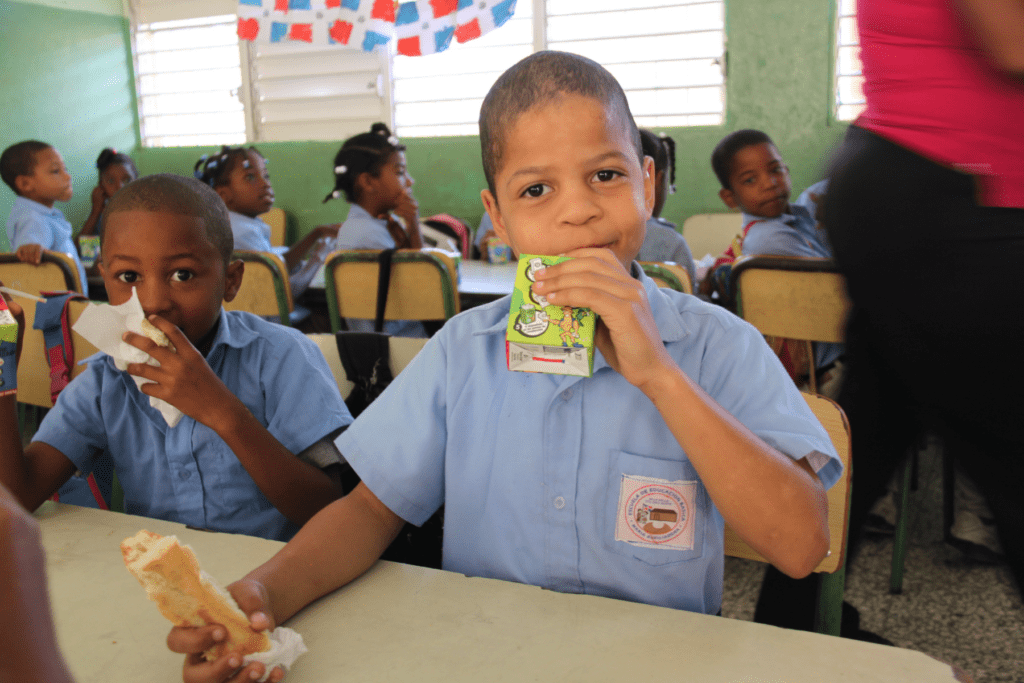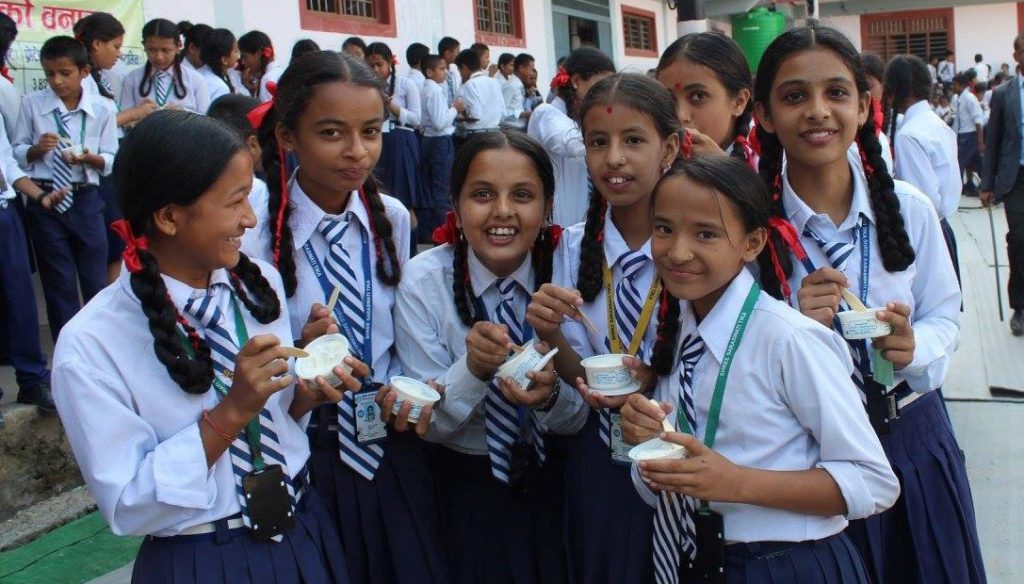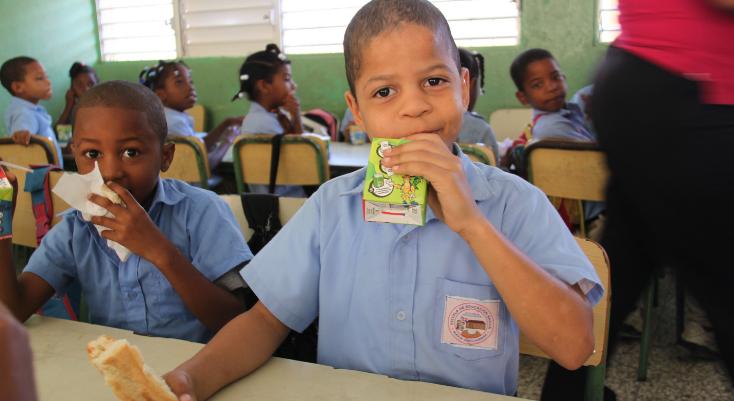As we soon approach World School Milk Day on 24 September, IDF would like to highlight the importance of school milk programmes (SMPs), which contribute to children’s development across the globe.
School milk programmes have been recognised over a century ago for their contribution to nutritional adequacy, health, and learning. Milk and dairy products are nutrient-rich, easy to consume, highly palatable, affordable, and often locally produced. Over 160 million children around the world currently receive and benefit from school milk.
In addition to providing milk and/or dairy products, these programmes help to foster a better understanding of dairy products, including where they come from, how dairy products are made, their nutritional composition, and how they fit into overall diets. Dairy is an important component of school meals, providing key nutrients that contribute to nutrition security. Milk, cheese, and yoghurt provide essential nutrients that support optimal growth, bone health and overall health.
The UN Food Systems Summit (UNFSS), convened by the UN Secretary-General in September 2021, brought governments, organisations and people together to transform the way we produce, consume and think about food. The Summit resulted in few concrete actions, including the establishment of the School Meals Coalition, which aims to ensure, through school meal programmes, that ‘every child has the opportunity to receive a healthy meal every day in school by 2030’.
School meal programmes are a significant safety net for children. As one of the primary means for children to get healthy meals, they help combat poverty and malnutrition. Their impact on education is seen in increased engagement from students. They also serve as incentives for families to send their children, especially girls, to school, thus supporting children’s rights to education, nutrition, and well-being.
These programmes play an important role as a community solution for nutrition adequacy, and this supports not only children’s health but also their ability to learn. Research suggests that consuming nutrient-dense foods that are readily available in school meal programmes — such as fruit, vegetables and dairy products — is associated with improved academic and health outcomes among children and adolescents.
The 2021 Global Nutrition Report showed that, worldwide, close to 150 million children under five years of age are stunted, around 45 million are wasted and almost 39 million are overweight. Over 40% of all men and women (2.2 billion people) are now overweight or obese.
National food-based dietary guidelines (FBDGs) are political, government-endorsed documents intended to provide context-specific recommendations and advice on healthy diets and lifestyles for adults and children older than five years. Aligning FBDGs with the latest evidence on healthy eating, and on the wider social, economic and environmental implications of dietary choices, is therefore an important starting point to enable policy coherence and creating a food environment that contributes to good public and personal health. To ensure a healthy next generation, our children must have a good nutritional start every day. School meal programmes that are based on national FBDGs are an effective way to ensure that locally recommended, evidence-based nutritional guidelines are followed and so help to prevent nutritional deficiencies, limit the risks for chronic diseases and promote general health of all learners.
The dairy sector understands the role that milk and dairy foods play in supporting the health of children worldwide and shares information through the IDF School Milk Knowledge Hub and School Milk Bulletin. By partnering with organisations across all levels – from local and regional to national and global – the dairy sector can empower stakeholders to understand and incorporate policies and programmes such as school milk programmes and milk and dairy foods in school meal programmes to support children’s access to nutritious foods.















